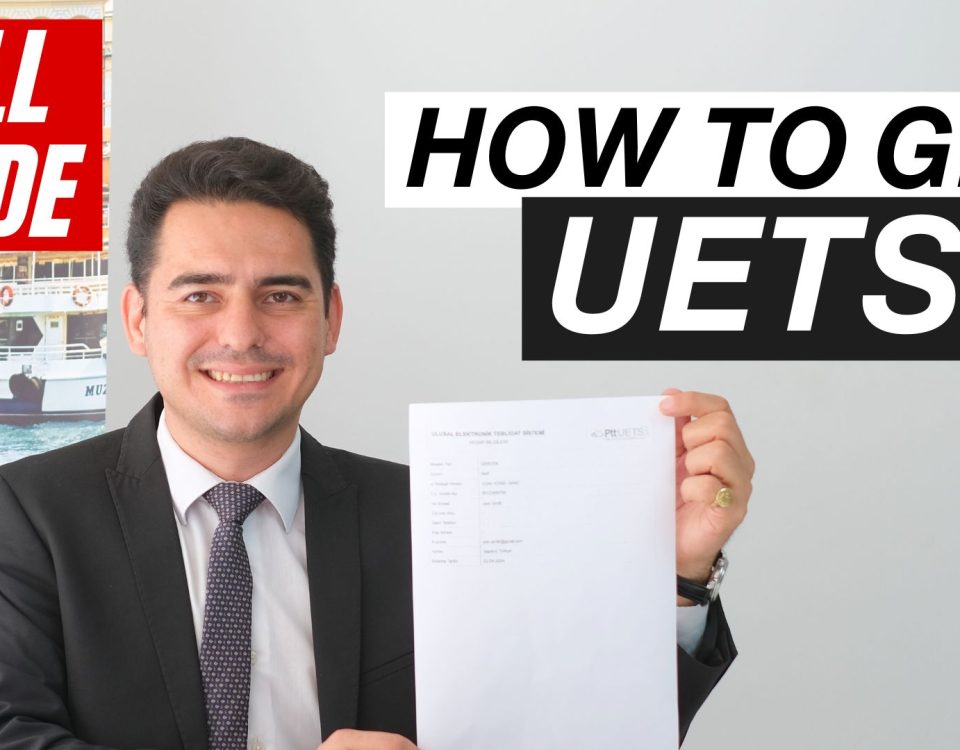Citizenship by Land Investment in Turkey: New Regulation on Turkish Citizenship on 12 December 2023

Giving Power of Attorney in Turkey: A Guide for Foreigners
December 13, 2023
Exploring Istanbul’s Parks: A Guide to Maçka, Yıldız, Emirgan, and More
December 14, 2023Citizenship by Land Investment in Turkey: New Regulation on Turkish Citizenship on 12 December 2023

The recent update to the Turkish Citizenship by Investment Program on 12 December 2023 involves a significant change in the definition of eligible property investments. Land purchase is eligible to get citizenship in Turkey.
According to the amendment, the phrase “döviz tutarındaki taşınmazı” in subparagraph (b) of the second paragraph of Article 20 of the Regulation on the Implementation of the Turkish Citizenship Law has been changed to “döviz tutarındaki kat mülkiyeti veya kat irtifakı kurulmuş ya da üzerinde yapı bulunan arsa vasıflı taşınmazı.” This alteration has crucial implications for investors and applicants.
The original regulation permitted investment in any real estate property of a certain value to qualify for Turkish citizenship. However, the updated regulation now specifies that the investment must be in either property with established condominium ownership (kat mülkiyeti) or floor easement (kat irtifakı) or in land with a building on it. This change narrows the scope of eligible properties, potentially impacting investment strategies.
Implications for Investors:
- Specific Property Types: The updated regulation implies that investments must now be in properties with certain legal statuses – either condominium ownership or floor easement rights, or land with a building. This change may exclude certain types of real estate, such as undeveloped land or properties without these specific legal statuses.
- Market Impact: This revision could lead to shifts in the real estate market, as investors might now focus more on properties that meet the new criteria. It could potentially increase demand for properties with condominium ownership or floor easement rights, thereby affecting their availability and pricing.
- Legal and Financial Considerations: Investors need to be aware of the legal implications of condominium ownership and floor easement rights in Turkey. Understanding these concepts and ensuring that their investment complies with the new regulations will be crucial. Additionally, this may influence the financial planning of investors, as different types of properties might come with varying costs and returns on investment.
- Due Diligence: It becomes even more important for investors to conduct thorough due diligence before making an investment. This includes verifying the legal status of the property, understanding the local real estate market, and ensuring compliance with all aspects of the citizenship by investment program.
- Potential for Future Changes: As with any regulatory environment, there is always the potential for further changes. Investors should stay informed about any future amendments to the Turkish Citizenship by Investment Program.
Types of Title Deed in Turkey
- Kat Mülkiyetli (Condominium Ownership):
“Kat mülkiyetli” refers to a title deed for a property that has been completed and is ready for habitation. It indicates that the owner has full ownership of a specific unit within a building, such as an apartment.
This type of title deed is critical for the new regulation as it signifies that the property is a completed and habitable space, aligning with the revised investment criteria. - Kat Irtifaklı (Floor Easement):
“Kat irtifaklı” is a type of title deed for properties that are still under construction. It grants the owner certain rights over a specific unit in a building that is yet to be completed.
While the property is not yet habitable, this title deed secures the investor’s claim to a specific part of the building upon completion. - Arsa Tapulu (Land Title):
“Arsa tapulu” refers to a title deed for a piece of land. This can include land with no construction on it or land that has a building.
Under the new regulation, if the land has a building on it, it may qualify for the citizenship program. However, vacant land without any construction likely would not qualify.
It’s important to note that some flats or buildings might be “arsa tapulu” if they are part of a larger plot of land and haven’t been subdivided into individual condominium ownership units.
Implications for Investors:
Verification of Title Deeds: Investors need to verify the type of title deed associated with the property they are considering. This will determine whether the property meets the criteria set out in the new regulations.
Risk in Investing in Under-Construction Projects: Investing in properties with “kat irtifaklı” deeds carries a certain level of risk, as the completion of the project is a future event. Investors should assess the credibility and track record of the developers.
Understanding Legal Implications: Each type of title deed comes with its own set of legal implications and rights. Understanding these is crucial for making an informed investment decision.
Consulting with Real Estate Experts: Given the complexity of real estate laws and the recent changes in investment criteria for Turkish citizenship, consulting with real estate experts and legal advisors in Turkey is highly advisable.



